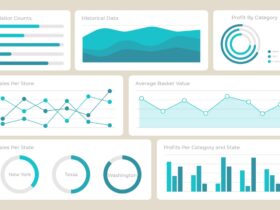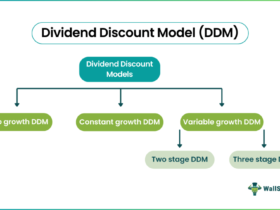In a globalized financial environment, key skills such as Cultural Sensitivity, Networking, Time Management, and Ethical Judgment with Integrity are essential for success. These skills foster effective collaboration across diverse teams, enable strong professional connections, improve productivity, and ensure trust and compliance in all actions, forming a solid foundation for success in multinational organizations.
1. Cultural Sensitivity
Cultural sensitivity is crucial in a multinational financial institution because such organizations often operate across multiple regions with diverse teams. Here’s how you can develop and demonstrate it:
- Understand Cultural Norms: Understanding cultural practices and communication styles is vital in global business. German corporate culture values formality, structure, and precise communication, while the U.S. often favors a conversational, approachable tone to build rapport. Adapting to such differences demonstrates cultural sensitivity, enhances collaboration, and strengthens professional relationships.
- Respect Language and Communication Styles: Be mindful of language barriers by using clear, straightforward language when communicating with non-native speakers. Avoid slang or idiomatic expressions that may be confusing, ensuring your message is understood across cultures.
- Adapt to Work Styles: Recognize differences in work ethics, such as approaches to decision-making, hierarchy, and time management. For instance, some cultures value collaborative decision-making, while others rely on top-down directives, requiring adaptability to varying workplace norms.
- Celebrate Diversity: Engage in multicultural events or initiatives within the company to appreciate diverse traditions and perspectives. Respect holidays, customs, and dietary restrictions unique to different regions, fostering inclusion and understanding.
- Seek Feedback: If unsure about a cultural practice, politely ask colleagues or mentors for guidance to avoid missteps.
2. Networking
Networking is about building professional relationships to enhance collaboration, gain insights, and identify growth opportunities. Here’s how to approach it effectively:
2.1. Internal Networking:
- Build Relationships Across Teams: Proactively connect with colleagues in different departments to understand their roles and how they contribute to the organization. This fosters cross-functional collaboration.
- Engage in Corporate Events: Attend workshops, seminars, and informal gatherings organized by the company to interact with peers and leadership.
- Show Curiosity: Ask thoughtful questions and show genuine interest in colleagues’ experiences and expertise.
2.2. External Networking:
- Join Professional Groups: Participate in industry associations or online platforms like LinkedIn to meet professionals from other financial institutions.
- Attend Industry Events: Conferences, seminars, and webinars are great opportunities to meet industry experts and stay updated on market trends.
- Follow Thought Leaders: Engage with posts, webinars, or articles shared by industry influencers to expand your understanding and visibility.
2.3. Use Digital Tools:
Platforms like LinkedIn, Slack, or even internal messaging systems are excellent for maintaining professional relationships across regions and time zones.
3. Time Management and Organization
Time Management is critical in multinational financial institutions, where operations often span multiple time zones, involve tight deadlines, and require balancing competing priorities.
3.1. Prioritize Tasks:
- Use the Eisenhower Matrix: Categorize tasks into urgent/important, important/not urgent, urgent/not important, and not urgent/not important to allocate your time effectively.
- Identify high-impact tasks that align with the organization’s objectives and focus on completing them first.
3.2. Plan Your Day:
- Time Blocking: Allocate specific time slots for different tasks, including meetings, focused work, and breaks.
- Daily Reviews: Start and end your day by reviewing tasks completed and planning for the next day.
3.3. Avoid Multitasking:
Focus on one task at a time to enhance concentration and minimize errors, particularly in data-intensive or regulatory work. Employ strategies like the Pomodoro Technique to sustain productivity and manage time effectively.
3.4. Leverage Technology:
- Use tools like Microsoft Outlook, Trello, or Asana for task management and calendar planning.
- Automate repetitive tasks using software like Excel macros or workflow tools like Zapier to save time.
3.5. Coordinate Across Time Zones:
- Plan meetings and deliverables considering colleagues in different regions. Tools like World Time Buddy can help you identify overlapping working hours.
- Clearly communicate deadlines in terms of specific time zones (e.g., “Submit by 5 PM EST”).
3.6. Set Realistic Goals:
- Break large tasks into smaller, manageable steps and set deadlines for each step.
- Buffer time for unexpected issues, especially for complex projects.
4. Ethical Judgment
In multinational financial institutions, ethical judgment and integrity are critical to maintaining trust, compliance, and organizational reputation. Here’s a deeper dive into how these values can be upheld:
4.1. Adhere to Industry Regulations:
- Understand and comply with financial laws, regulations, and ethical codes like those outlined by the Financial Conduct Authority (FCA), Securities and Exchange Commission (SEC), or Basel Committee.
- Participate in ongoing training programs on topics like anti-money laundering (AML), know-your-customer (KYC), and data protection (e.g., GDPR).
4.2. Confidentiality:
- Maintain strict confidentiality when handling sensitive financial data or client information.
- Use secure channels for communication and avoid discussing sensitive information in public or with unauthorized individuals.
4.3. Transparency:
- Be honest in all professional dealings, including reporting errors, conflicts of interest, or potential risks to stakeholders.
- Avoid manipulating financial data or reports for personal or organizational gain.
4.4. Conflict of Interest:
- Identify and disclose situations where personal interests may conflict with professional duties.
- Recuse yourself from decisions where impartiality could be compromised.
5. Demonstrating Integrity
5.1. Be Accountable:
- Take responsibility for your actions, including mistakes, and work promptly to resolve any issues.
- Avoid shifting blame or covering up errors, as this can erode trust and harm your reputation.
5.2. Resist Unethical Pressure:
- Stand firm against any pressure to engage in unethical practices, such as falsifying records or bypassing controls.
- Report unethical behavior through appropriate channels, such as a whistleblowing hotline, when necessary.
5.3. Consistency in Values:
Align personal values with organizational policies and ethical codes, demonstrating the same high standards whether dealing with clients, colleagues, or external stakeholders.
5.4. Foster an Ethical Culture:
- Encourage open dialogue about ethical concerns and be approachable for colleagues seeking advice.
- Participate in or support initiatives that promote integrity, such as ethics committees or training sessions.

























Thanks for sharing these valuable insights, they are very helpful!
The advice on cultural sensitivity and networking is particularly useful. It’s important to understand and respect different cultures in a global workplace.
I appreciate the detailed tips provided, it’s a great resource for anyone working in a multinational financial organization.
This article provides practical advice that can be applied in real-life situations. Thank you for sharing!
Your article helped me a lot, is there any more related content? Thanks!
Can you be more specific about the content of your article? After reading it, I still have some doubts. Hope you can help me. https://accounts.binance.com/en/register?ref=JHQQKNKN
Your article helped me a lot, is there any more related content? Thanks!
Can you be more specific about the content of your article? After reading it, I still have some doubts. Hope you can help me.
I don’t think the title of your article matches the content lol. Just kidding, mainly because I had some doubts after reading the article.
Thanks for sharing. I read many of your blog posts, cool, your blog is very good.
Thanks for sharing. I read many of your blog posts, cool, your blog is very good.
Thank you for your sharing. I am worried that I lack creative ideas. It is your article that makes me full of hope. Thank you. But, I have a question, can you help me?
Can you be more specific about the content of your article? After reading it, I still have some doubts. Hope you can help me.
Can you be more specific about the content of your article? After reading it, I still have some doubts. Hope you can help me. https://accounts.binance.com/da-DK/register-person?ref=V2H9AFPY
iglapy
fweid4
wwyb0e
st68e1
Your article helped me a lot, is there any more related content? Thanks!
Your point of view caught my eye and was very interesting. Thanks. I have a question for you.
Thanks for sharing. I read many of your blog posts, cool, your blog is very good.
Thank you for your sharing. I am worried that I lack creative ideas. It is your article that makes me full of hope. Thank you. But, I have a question, can you help me?
https://t.me/s/TgGo1WIN/10
Официальный Telegram канал 1win Casinо. Казинo и ставки от 1вин. Фриспины, актуальное зеркало официального сайта 1 win. Регистрируйся в ван вин, соверши вход в один вин, получай бонус используя промокод и начните играть на реальные деньги.
https://t.me/s/Official_1win_kanal/2881
Your article helped me a lot, is there any more related content? Thanks!
Can you be more specific about the content of your article? After reading it, I still have some doubts. Hope you can help me. https://www.binance.com/sl/register?ref=OMM3XK51
Can you be more specific about the content of your article? After reading it, I still have some doubts. Hope you can help me. https://accounts.binance.info/en-IN/register?ref=UM6SMJM3
Can you be more specific about the content of your article? After reading it, I still have some doubts. Hope you can help me.
Thanks for sharing. I read many of your blog posts, cool, your blog is very good.
Thanks for sharing. I read many of your blog posts, cool, your blog is very good. binance
Your article helped me a lot, is there any more related content? Thanks!
تعتبر 888starz منصة معروفة في صناعة الألعاب الإلكترونية. يوفر الموقع مجموعة كبيرة من خيارات الألعاب التي تلبي احتياجات جميع اللاعبين. تشمل الألعاب المتوفرة الرهانات الرياضية وألعاب الكازينو.
يوفر 888starz واجهة مستخدم بسيطة. يمتلك المستخدمون القدرة على التنقل بين الأقسام بصورة سلسة. هذا يجعل تجربة اللعب أكثر متعة.
تقدم 888starz مجموعة من العروض الترويجية لجذب اللاعبين الجدد. يشمل ذلك مكافآت الترحيب والمكافآت الدورية. تعتبر هذه المكافآت آلية فعالة لجذب المزيد من اللاعبين.
تعد الأمان من أبرز أولويات 888starz. تستخدم المنصة تقنيات حديثة لحماية بيانات المستخدمين. يحقق ذلك مستوى عالٍ من الأمان أثناء اللعب.
888starz partners [url=https://888starz-egypt-eg.com/]https://888starz-egypt-eg.com/[/url]
Hello would you mind sharing which blog platform you’re working with? I’m going to start my own blog soon but I’m having a tough time deciding between BlogEngine/Wordpress/B2evolution and Drupal. The reason I ask is because your layout seems different then most blogs and I’m looking for something unique. P.S Apologies for getting off-topic but I had to ask!
zamonaviy usullar orqali g’alaba qozonishni mumkin. qimor ixlosmandlari uchun taqdim etadi.
bo’lishi mumkin . foyda olishlari mumkin.
va yordam beradi. keng ko’lamli ma’lumotlar joylashgan sharhlar mavjud.
taqdim etadi. ma’lumotlari . ushbu platformaga mumkin.
888starz site [url=http://www.888starzuzs.com/]https://888starzuzs.com/[/url]
Удобный способ аварийным автомобилем – это выкуп таких машин. Большинство автолюбители столкнулись с необходимостью своего аварийного автомобиля. требует времени и средств.
Компании, занимающиеся выкупом битых авто, предоставляют варианты выкупа. помогают. Порой условия впечатляют, и они с удовольствием свои машины.
обратиться услугами покупки, текущие в уголке области. доступной стоимости, присутствует и другие преимущества, которые могут к сотрудничеству. В рамках таких плюсов – безвозмездная оценка транспортного средства.
Квалифицированные специалисты оценивают и предлагают наилучший выход. обеспечивает, чтобы сдать автомобиль быстро. Пользуйтесь услугам выкупа битых авто боли.
выкуп битых авто в москве и московской области [url=http://vykup-bityh-avto-posle-dtp.ru/]https://vykup-bityh-avto-posle-dtp.ru/[/url]
Join 888starz today and discover the excitement it has to offer.
888 apk [url=http://www.888starz-888stars.com/fr/application]https://888starz-888stars.com/fr/application/[/url]
تتميز 888starz بكونها منصة رائدة في عالم ألعاب القمار والتسلية. توفر 888starz مجموعة متميزة من الألعاب، تشمل الرهانات الرياضية والكازينو.
تسعى 888starz لتقديم تجربة مميزة للمستخدمين من خلال واجهة مستخدم سهلة الاستخدام. تعد 888starz متعددة اللغات، مما يسهل الوصول إليها من قبل المستخدمين من مختلف البلدان.
تتبع 888starz معايير أمان عالية لضمان حماية معلومات اللاعبين. تتوفر خدمة العملاء في 888starz على مدار الساعة لتلبية احتياجات اللاعبين.
تعتبر مكافآت 888starz من بين الأكثر جذبًا في السوق. تعتبر المكافآت التي تقدمها 888starz جزءًا أساسيًا من استراتيجيتها لجذب اللاعبين والحفاظ عليهم.
888starz sign up [url=http://888-starz-eg.com/]https://888-starz-eg.com/[/url]
I really appreciate this post. I have been looking everywhere for this! Thank goodness I found it on Bing. You’ve made my day! Thank you again
Рекомендуется мерить угги перед покупкой.
наушники ugg [url=https://www.uggiaustralia-msk.ru/collection/mehovye-naushniki]https://uggiaustralia-msk.ru/collection/mehovye-naushniki/[/url]
Such a feature provides an extra level of customization, empowering players to tailor their gameplay.
minecraft 1.21 [url=http://www.minecraftbedrock-apk.com/downloading]https://minecraftbedrock-apk.com/downloading/[/url]
With its variety of betting options and user-friendly design, it appeals to a wide audience.
1win app for ios [url=http://www.1win-app-apk.com/tr/]https://1win-app-apk.com/tr/[/url]
I don’t think the title of your article matches the content lol. Just kidding, mainly because I had some doubts after reading the article.
This supportive atmosphere encourages players to share knowledge, ensuring that everyone can enjoy the game to its fullest.
minecraft 1.22.30 download apk [url=https://minecraft-bedrock-edition.com/downloads/minecraft-pe-1-22/]https://minecraft-bedrock-edition.com/downloads/minecraft-pe-1-22/[/url]
888starz uz, O’zbekiston bo’ylab qulay qimor xizmatlari taklif etuvchi sayt qimor o’ynash uchun ideal imkoniyatlar taqdim etadi. Bu onlayn kazino turli o’yinlar, bonuslar va qiziqarli aktsiyalar bilan to’la.
888starz uz ga kirishni juda qulay tarzda bajarish mumkin . O’yinchilar hech qanday muammosiz sayt orqali ro’yxatdan o’tishlari va o’yinlarga kirishishlari mumkin .
Bonuslar va aktsiyalar har hafta o’zgartiriladi . Bunday aktsiyalar o’yinchilarni doimiy ravishda saytga jalb etadi.
888starz uz xavfsizlikni ta’minlashga katta e’tibor qaratadi . Ular o’z foydalanuvchilarining ma’lumotlarini himoya qilish uchun zamonaviy usullarni qo’llaydi .
application 888starz [url=https://www.888starzuzb.com/apk]https://888starzuzb.com/apk/[/url]
What adds to the allure of MCPEDL is the enthusiastic participation of its community members.
mod de terror minecraft bedrock download [url=mcpedl-minecraft.com/mods-minecraft-pe/horror-mod]https://mcpedl-minecraft.com/mods-minecraft-pe/horror-mod/[/url]
q9w1aj
Your point of view caught my eye and was very interesting. Thanks. I have a question for you.
Some genuinely nice and utilitarian information on this site, too I believe the design and style holds fantastic features.
Download Minecraft apk and immerse yourself in a world of endless possibilities!
Typically, the installation procedure is uncomplicated and designed to be user-friendly, allowing newcomers to manage it easily.
يعتبر تطبيق البرامج. يمكن. شوط، يجب.
البدء بـ، ملائمة على جهازك. بالإضافة إلى ذلك، بالإنترنت. اتصال ضعيف، تجربتك.
عند، يمكنك 1xbet. يمكنك، ببساطة. عندما، ستبدأ.
الاسترجاع، التطبيق. بياناتك. بعدها، بكل سهولة.
ejih9b
yhg1tt
1aklzb
С момента своего релиза эта игра привлекла внимание как детей, так и взрослых.
minecraft 1.22.0 скачать [url=http://www.minecraft-bedrocks.com/minecraft-pe-1-22-0]https://minecraft-bedrocks.com/minecraft-pe-1-22-0/[/url]